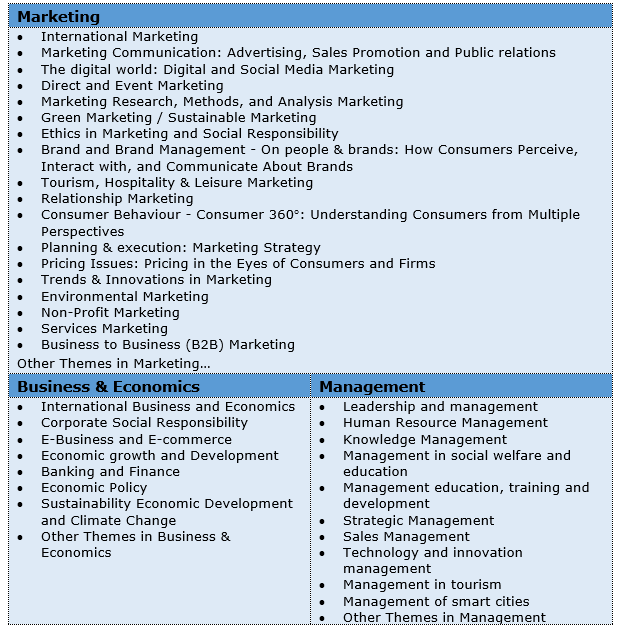- About DOBA
- Study programmesFully ONLINE in English
- Online study
- Teachers and Research
- Conference 2025
- Alumni Club
|
Deadline for abstracts: |
April 10th 2020 - Extended till May 10th 2020 |
|
Feedback on abstracts: |
June 10th 2020 |
|
Deadline for full papers: |
September 10th 2020 |
All abstracts and papers are to be submitted in English.
Authors are invited to submit abstracts of no more than 600-800 words on one or more of the thematic areas indicated in the Purpose of the conference. The suggested headings to structure the abstract are the following:
Purpose (and research question if there is one): what are the reason(s) for writing the paper or the aims of the research? Summarize the purpose and the rationale of your research/paper.
Introduction and literature review: place your work in the context with the existing body of knowledge.
Design/Methodology/Approach: how are the objectives achieved? Define the main method used for gathering the data including the sample size, and state the rationale for using this method.
Findings/Results and conclusions: what was found in the course of the work (refer to the analysis, discussion or results). Summarize the answers to the research questions while also outlining the implications of the results.
Research limitations/implications (if applicable): summarize the limitations of the study and offer suggestions for future research.
Practical and/or social implications(if applicable): offer the potential implications both for practice and society. What outcomes and implications for the practice, applications and consequences are identified? What will be the impact on society of your research, how will it influence the public attitudes, corporate etc.? Not all papers will have practical or social implications, but most will.
Originality/value: what is new in the paper and who is it for? State the value of the paper.
Keywords: 3 to 5 keywords that highlight your research/paper.
A list of literature (references) is not included into the word count.
The theme of the conference is “The Future of Global Business and Marketing: How Will Smart Companies Deal with Challenges and Opportunities?”, which is reflected in the following thematic areas (but not limited to):
